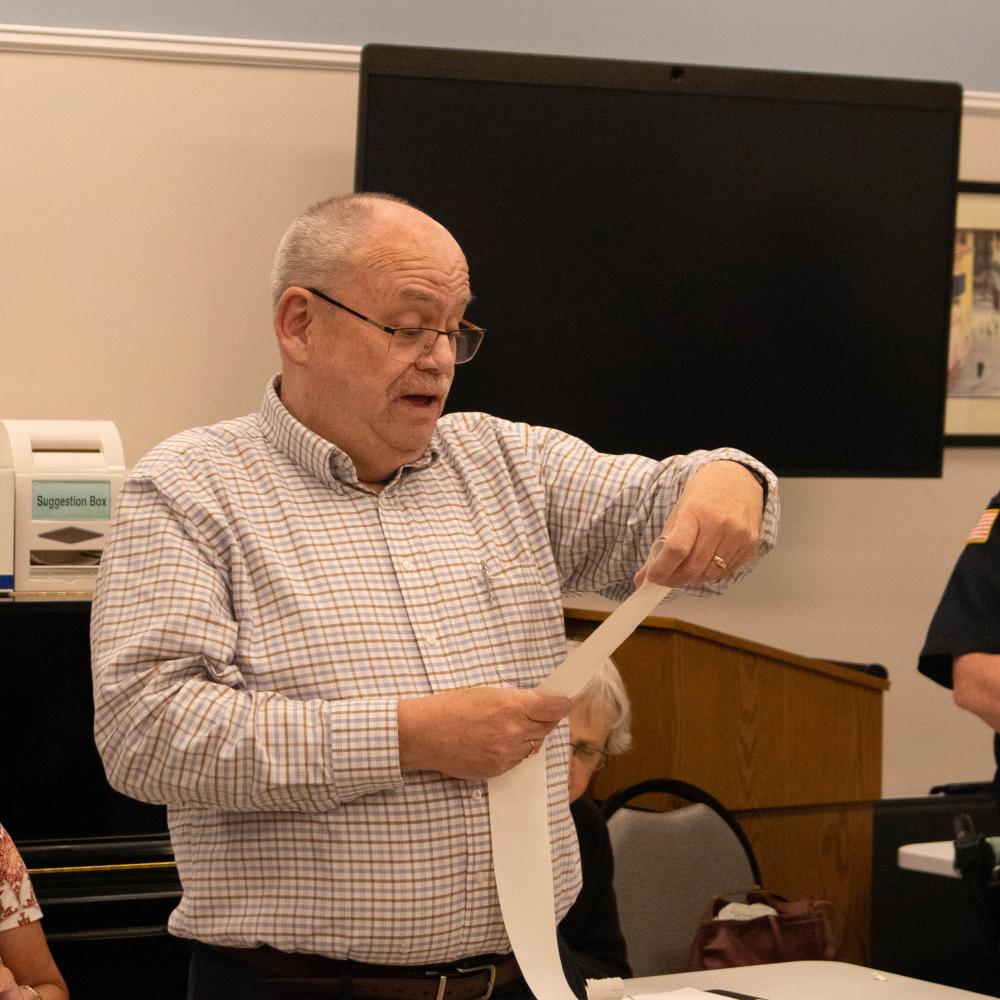Big money in little Rochester: Political action committee supports, opposes candidates
ROCHESTER — Three successful candidates in Rochester’s town election got the backing of a newly formed political action committee that had access to $20,000 in funds and out-of-state support from political marketing firms.
Rochester resident Jacqueline Eckert and Wisconsin-based campaign finance consultant Thomas Datwyler signed documents on May 4 to establish “Rochester Citizens for Responsible Government,” an independent expenditure political action committee.
Eckert’s political action committee supported Rochester Select Board candidate Adam Murphy, incumbent Old Rochester Regional School Committee member Joseph Pires, incumbent Rochester School Committee member Anne Fernandes and Rochester School Committee candidate Greg Hardy.
The committee also opposed incumbent Select Board member Greenwood Hartley.
Pires, Fernandes and Murphy won their respective races. The three candidates have not yet responded to requests for comment about the support they received from the political action committee.
Eckert serves as chair of the political action committee and Datwyler, who previously worked on Marco Rubio’s 2016 presidential campaign, serves as treasurer.
Eckert and Datwyler have not yet responded to requests for comment about their involvement in the committee.
Independent expenditure political action committees, also known as Super PACs, exist “for the purpose of making … expenditures to support or oppose a candidate without coordinating with that candidate or campaign,” said Massachusetts Office of Campaign and Political Finance spokesperson Jason Tait.
“Rochester Citizens for Responsible Government” was founded with the purpose of participating in the “electoral process in Rochester, MA and surrounding communities,” according to the group’s statement of organization.
According to town clerks in Marion and Mattapoisett, there were no political action committees involved in either towns’ election.
The Rochester group was funded with two $10,000 contributions from Eckert herself on May 11 and May 16.
In the 2023 Rochester Town Election, Eckert’s political action committee spent $9,828 to support Pires, Fernandes, Hardy and Murphy.
This support was provided through payments for “print mailers,” “direct mail,” “automated phone calls,” and “texting,” according to independent expenditure reports filed with the Rochester Town Clerk.
According to Tait, an independent expenditure political action committee’s primary focus is “communications.”
“An independent expenditure [political action committee] might say, ‘we really like Candidate X,” said Tait as an example. “‘Let's send a mailing to the entire town or city [to] support Candidate X.’”
In Rochester, expenditures for “direct mail,” “print mailers” and “texting” were paid to Arena Mail and Digital, a conservative Utah-based marketing firm that has provided services to Republican candidates including New York Congressman George Santos and Utah Senator and former Massachusetts Governor Mitt Romney.
The expenditure for “automated phone calls” was paid to Ring Digital, an Ohio-based advertising and marketing firm that has previously “partnered with the Ohio republican party,” according to its website.
It is unknown if these efforts to reach Rochester voters were targeted to specific demographics.
Tait noted that groups like the one in Rochester can also work to oppose specific candidates. In this year’s election, the group spent $2,123 to oppose incumbent Rochester Select Board member Hartley, who lost his reelection bid.
According to Hartley, there were two mailers sent out in opposition to his candidacy.
One mailer played on his name and “[tried to] make people think that I cost them money because I supported the Green Community Program,” said Hartley. “I anticipated something personally hurtful would happen and I was prepared for it.”
A Green Community has to meet certain criteria which includes creating a plan to reduce energy use by 20% within five years and adopting a fuel efficient vehicle purchase policy.
Additionally, Green Communities must adopt the “Stretch Code,” a specialized and more strict building-energy code that “emphasizes energy performance,” according to the Massachusetts Department of Energy Resources.
In return for following these guidelines, a Green Community is eligible for state-funded grants.
According to Hartley, he thinks that “there was clearly an endorsed platform separated by national politics in the Town of Rochester.”
“There was an opportunity here that was grasped upon because there was a specific issue that an ultra-conservative thinker might grasp onto,” said Hartley.
It was not surprising to see a political action committee become involved in a school committee election, said Douglas Roscoe, a political science professor at UMass Dartmouth.
“School boards now are the new battlefront for the culture wars,” said Roscoe. “A lot of the issues [surround] how schools handle LGBTQ+ issues [and] how they deal with books that may have content that some parents don’t want their kids to read.”
Both Pires and Fernandes have been vocal proponents of challenging books in Old Rochester Regional School District libraries that deal with issues surrounding race and gender, and that some call “sexually explicit.”
According to Roscoe, issues like vaccination and mask mandates in schools “put people's attention on [school committees] and I think it progressed into these other cultural issues that have a liberal, conservative valence,” he said.
Still, Roscoe doesn’t see political action committees becoming commonplace in small town elections.
“The school committee element is a little unique and I think there’s a reason why that’s occurring now, but if and when that subsides, and people stop paying attention to school committees like they used to, then I don’t really see there’s going to be a lot of independent expenditures for local races,” he said.
With around $10,000 still in its coffers after the 2023 town election, it is unclear if “Rochester Citizens for Responsible Government” will support candidates in upcoming elections.















